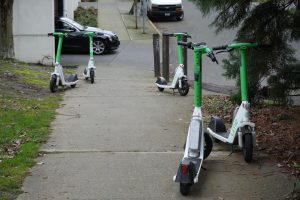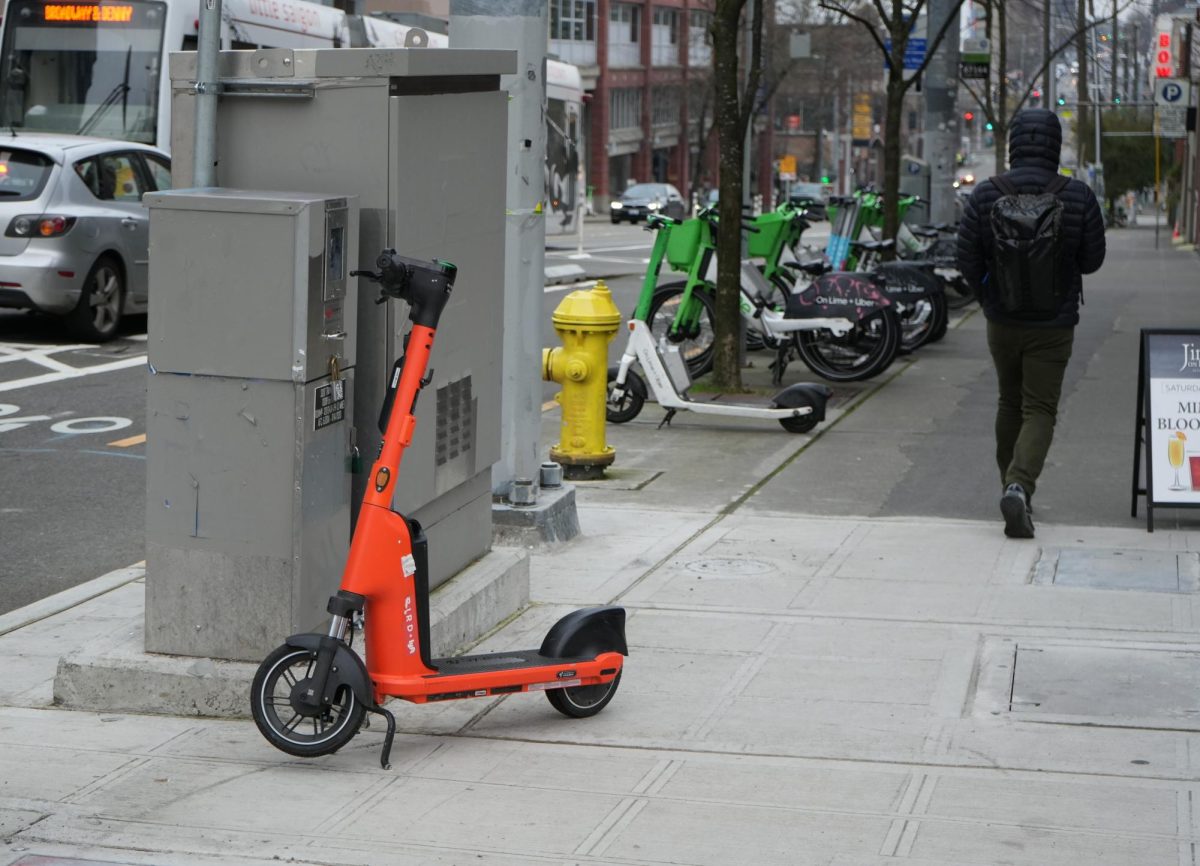Returning to campus after winter break, Seattle University students received a message from SU Today in their email inboxes welcoming them to winter quarter and providing announcements from Associate Provost and Dean of Students James Willette. Included in this email was a reminder that “the use of electric scooters and hoverboards is not permitted on Seattle University owned, leased, or managed property, including in publicly accessible outdoor areas.” The email went on to instruct riders to dismount their scooters before entering campus and store them in authorized areas like bike racks.
Electric scooters are a common sight on campus, with rentable brands like Lime or Bird or personal property scattered around. While this policy has been in place since at least 2022, many students were unaware that the use of electric scooters was against school policy.
“I honestly had no idea they weren’t allowed,” First-year Marketing Major Via Tay said. “I’ve seen lots of people in my classes use scooters to make sure they get to class on time.”
While some students may rely on electric scooters as tools to get around campus, others share concerns about the safety issues caused by people using them recklessly. Sources speculate this worry likely led to the ban, combined with student reports of collisions or dangerous behavior.
First-year Psychology Major Maya Stefanovic described an incident in front of Bellarmine Hall where they were nearly hit by someone riding on an electric scooter.
“I was walking past the roundabout when suddenly I see someone just zoom right past me on a personal scooter,” Stefanovic said. “It was kind of a scary situation because I don’t want to get hit. I could tell that they were being kind of reckless with it because they were swerving through people and not stopping, and they were going really fast too until they hit the hill.”

In Stefanovic’s case, no one was injured. However, this is not always the case. Research compiled by Harborview Medical Center and the University of Washington reports that the levels of severe electric scooter-related injuries in Seattle have skyrocketed since 2018. Because of this injury risk, publicly rentable scooters occasionally include technology like geofencing which allows the company to limit their use in certain locations.
On campus, these public scooters are limited to roughly 10 mph while in other locations they can reach up to 15 mph. Privately owned scooters, however, have no such limits and are harder to police. It’s these that the university hopes to quell the use of.
Despite reminders about the ban being sent out, some students worry that not enough is being done to enforce these safety measures. Stefanovic reported that in the situation they observed, the scooter user made it through to the other side of campus without any intervention.
According to an anonymous source within Seattle U’s Department of Public Safety, this is a common occurrence. Oftentimes riders will simply ignore verbal warnings, driving right past public safety officers.
“We try to get them to stop and get their names written down,” the source said. “If it’s the same person multiple times and they aren’t a student, we can trespass them.”
Currently, there is no fine or ticketing system for the use of electric scooters on campus.
Public safety building monitor Juno Fuja, a first-year marketing major, repeated similar claims.
“[My supervisors] haven’t really told us to intervene if we see people using scooters,” Fuja said. “From what I’ve heard some of the officers have been telling people not to ride them, but it doesn’t happen as often as it should.”
Fuja also echoed concerns about the safety of electric scooter use, voicing support for the ban.
It is unclear if the university intends to strengthen its measures against the use of electric scooters. The Spectator reached out to Dean Willette regarding the decision to include a reminder in his SU Today newsletter but did not receive a comment.





